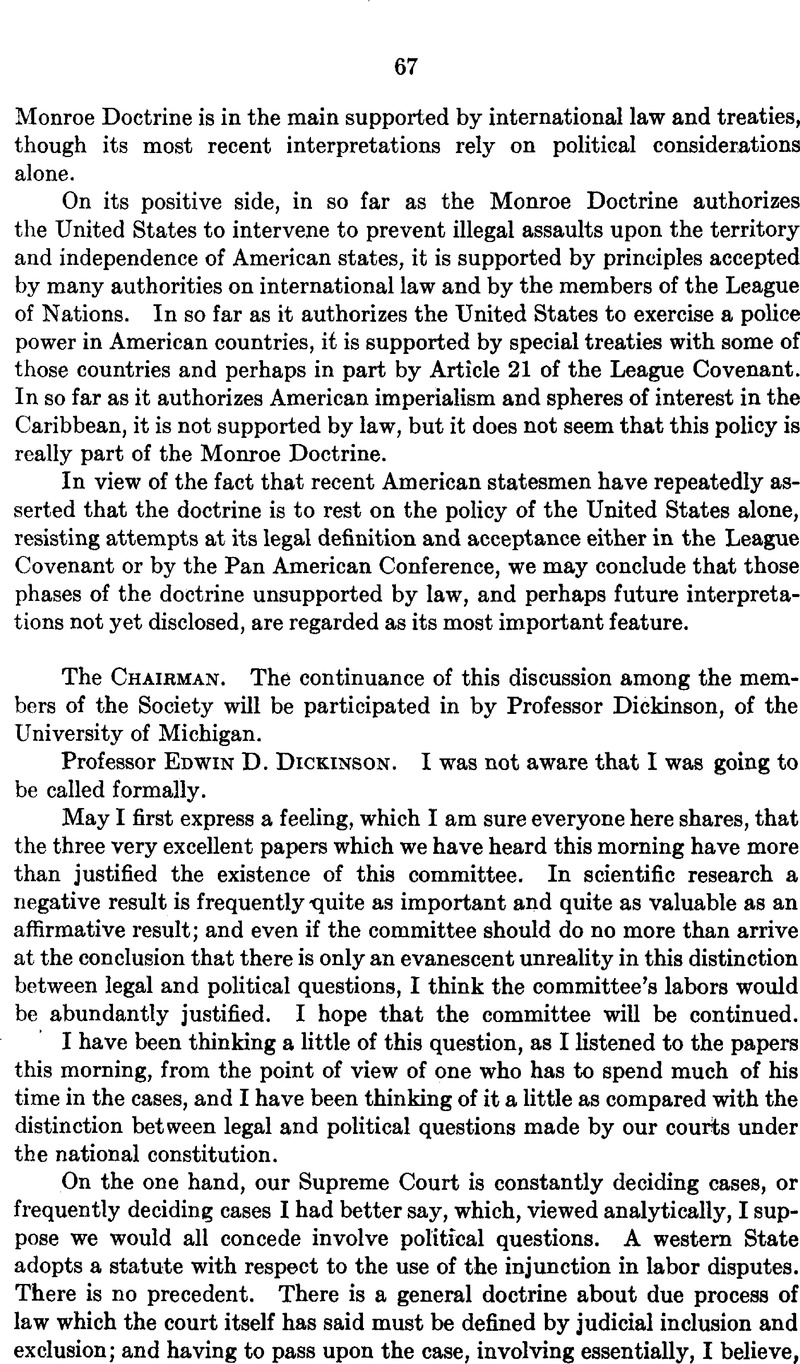No CrossRef data available.
Published online by Cambridge University Press: 27 February 2017

1 The passage from the opinion of Mr. Justice Baldwin in Rhode Island v. Massachusetts, 12 Peters, 657, 736-738 (1838), to which Dr. Scott refers is as follows:
“The founders of our government could not but know, what has ever been and is familiar to every statesman and jurists, that all controversies between nations, are, in this sense, political, and not judicial, as none but the sovereign can settle them… . None can be settled without war or treaty, which is by political power; but under the old and new confederacy they could and can be settled by a court constituted by themselves, as their own substitutes, authorized to do that for states, which states alone could do before. We are thus pointed to the true boundary line between political and judicial power, and questions. A sovereign decides by his own will, which is the supreme law within his own boundary: a court, or judge, decides according to the law prescribed by the sovereign power, and that law is the rule for judgment. The submission by the sovereigns, or states, to a court of law or equity, of a controversy between them, without prescribing any rule of decision, gives power to decide according to the appropriate law of the case; which depends on the subject matter, the source and nature of the claims of the parties, and the law which governs them. From the time of such submission, the question ceases to be a political one to be decided by the sic volo, sic jubeo, of political power; it comes to the court to be decided by its judgment, legal discretion, and solemn consideration of the rules of law appropriate to its nature as a judicial question, depending on the exercise of judicial power; as it is bound to act by known and settled principles of national or municipal jurisprudence, as the case requires…
“These considerations lead to the definition of political and judicial power and questions; the former is that which a sovereign or state exerts by his or its own authority, as reprisal and confiscation; the latter is that which is granted to a court or judicial tribunal. So of controversies between states; they are in their nature political, when the sovereign or state reserves to itself the right of deciding on it; makes it the ‘subject of a treaty, to be settled as between states independent,’ or ‘the foundation of representations from state to state.’ This is political equity, to be adjudged by the parties themselves, as contradistinguished from judicial equity, administered by a court of justice, decreeing the equum et bonum of the case, let who or what be the parties before them.”